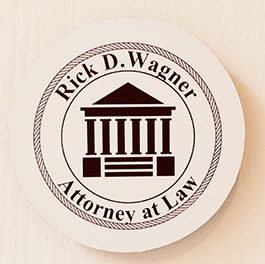Rainiest Places in Colorado and How to Avoid Them On The Road
By Ursula Nizalowski
Due to the Rocky Mountains being situated in the heart of Colorado, there are quite a few areas
in this state which get a lot of rainfall. This is especially true around spring as snow in the
mountains melts with the rising temperatures creating mudslides and flash floods. But some
areas in Colorado get more rain than others. On top of that, record-breaking inches of rain were
reported along the Front Range last June by the National Weather Service according to 9News .
So here’s a list of the top five counties in Colorado that get the most amount of precipitation and
some alternate routes to take to avoid them.
Top 5 Colorado Counties with the Most Rain (As of 2023)

#5: Clear Creek – While traveling along US Highway I-70 through the Rockies, Clear
Creek County is one the areas one passes through on the way to Denver. In this county, there are
tourist towns like Silver Plume along with the Loveland Ski Area. Clear Creek also gets 24.41
inches of precipitation as calculated by Stacker on average.
#4: Mineral – Not to be confused with Mineral County, Nevada, the Mineral County
we have in Colorado is located southeast of Ouray near the Rio Grande National Forest. The
main thing the county is known for is Wolf Creek Pass, where “47 semi-truck drivers have
crashed” between 2015-9 in a warning issued by the Colorado Department of Transportation
( CDOT ). While this is largely due to Wolf Creek’s deceptively narrow switchback curve,
another possible underlying factor is the county gets an average 25.73 inches of precipitation.
#3: Hinsdale – Right next to Mineral County is Hinsdale County, which includes the
town of Lake City. It also has the famous Engineer Pass, which is a high mountain road that’s
considered to be “one of the highest roads in Colorado” according to dangerousroads . With that
said, this county has 26.59 inches of precipitation on average.
#2: Pitkin – Located just south of Glenwood Springs, Pitkin County is the home of
Aspen, one of Colorado’s most famous cities. It’s not only notable for being a popular celebrity
retreat but also close to Independence Pass, which has infrequent road closures due to occasional
rocks in the roadway . On top of that, there is 27.45 inches of precipitation in this county.
#1: San Juan – Near the southern border of Colorado lies San Juan County, which is
home to the historic mining town of Silverton and the Million Dollar Highway that goes through
the mountains on several high elevation passes. While the view is stunning, this road can be
challenging and potentially hazardous due to its winding curves and steep gorges. San Juan also
gets a great deal of precipitation clocking in an average of 35.61 inches .
Alternative Routes
US Highway 40 – Apart from the I-70, another US Highway to take through the
Rockies would be US 40. Stretching between Dinosaur and east of Denver, Colorado, the 40
consists of a northernly route that then heads south through Steamboat Springs. Not only has
this alternate route been recommended by CDOT during safety closures on I-70 says the Aspen
Daily News , but it would allow one to avoid wet counties like Clear Creek and Pitkin.
Highway 285 – Starting from Vail, US Highway 285 takes one in a more southern
direction towards Denver while going through Breckenridge. Grand Park Real Estate says this
highway is “not a terrible option if I-70 is closed due to weather,” which does happen from time
to time. So it allows one to weave nicely past Pitkin and Clear Creek without having to go
through Mineral and Hinsdale County further south.
Placerville/Cortez Loop – To avoid San Juan County altogether, it would require
going on a big loop around the southern mountains. Starting in Placerville, one takes a southern
route towards Cortez on Colorado Highway 145 and “uses less-scary sections of US-550 and
Highway 62” says BookOutdoors . While it is long hour-wise, this route is safe and avoids most
of the rain in San Juan.
For more information on preventing accidents caused by severe rainfall, feel free to contact
attorney Rick Wagner .

